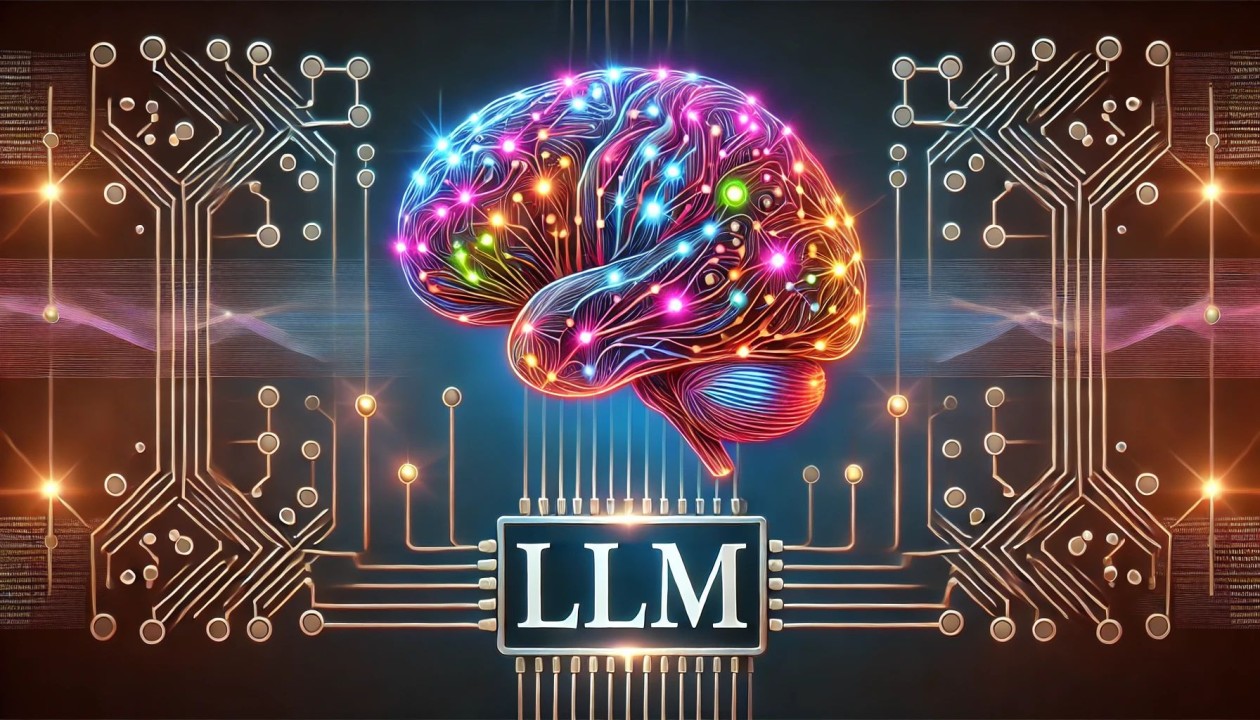Why Are Custom Large Language Model Solutions Essential for Chatbot Development?
 Albert Peter
Albert Peter
In recent years, chatbots have become integral to customer service, marketing, and various digital interactions across industries. As businesses seek to enhance user experience, the demand for more sophisticated and tailored chatbot solutions has grown. One of the most critical aspects of achieving this level of sophistication lies in leveraging custom Large Language Model (LLM) solutions. This blog post explores why these custom LLM solutions are essential for chatbot development, delving into their advantages, use cases, and best practices for implementation.
Understanding Large Language Models
Large Language Models are advanced AI systems trained on vast datasets to understand and generate human language. Unlike traditional rule-based chatbots, which rely on predefined scripts and keywords, LLMs leverage deep learning techniques to comprehend context, tone, and intent. This ability enables them to engage in more natural and nuanced conversations, making them ideal for applications ranging from customer support to personal assistants.
Why Customization Matters
While pre-trained LLMs, such as OpenAI's GPT series or Google's BERT, provide a strong foundation for natural language processing (NLP), they often fall short when applied directly to specific industries or use cases. This is where custom LLM solutions come into play. Customization involves fine-tuning a model on domain-specific data, ensuring it understands industry jargon, context, and user expectations. Here are some critical reasons why custom LLM solutions are essential for effective chatbot development:
1. Enhanced Accuracy and Relevance
One of the primary benefits of custom LLM solutions is improved accuracy. A generic model may struggle with specialized terminology or context, leading to misunderstandings or irrelevant responses. By training an LLM on data specific to a business's domain, companies can ensure their chatbots provide accurate and relevant answers.
For example, a healthcare chatbot would benefit from a model trained on medical terminology, patient interaction data, and health-related FAQs. This specificity ensures that users receive reliable and precise information, improving overall satisfaction and trust in the service.
2. Personalization
Today’s consumers expect personalized experiences, and chatbots are no exception. Custom LLM solutions allow developers to tailor chatbot responses based on user profiles, preferences, and past interactions. By integrating customer data, chatbots can provide personalized recommendations, address users by name, and even adjust their tone based on individual user characteristics.
For instance, a retail chatbot could be customized to recognize a user’s purchase history and suggest products that align with their preferences. This level of personalization fosters deeper engagement and encourages repeat interactions, ultimately driving customer loyalty.
3. Better Contextual Understanding
Context is crucial in human communication. Generic LLMs may struggle to maintain context throughout a conversation, leading to disjointed interactions. Custom LLMs, trained on conversation data specific to a business, can better grasp context, allowing for more coherent and fluid dialogues.
For example, in a technical support scenario, a custom chatbot could remember previous interactions and use that information to address ongoing issues or follow up on unresolved queries. This capability not only enhances user experience but also improves efficiency by reducing the need for users to repeat themselves.
4. Scalability and Flexibility
Custom LLM solutions provide businesses with the flexibility to scale their chatbot capabilities as their needs evolve. As industries change and new trends emerge, chatbots must adapt to stay relevant. Custom models can be updated with new data, retrained, or even modified to incorporate new features.
For instance, a financial services chatbot may need to adapt to changing regulations or new product offerings. A custom LLM allows for quick updates without the need to start from scratch, ensuring that the chatbot remains useful and accurate over time.
5. Cost-Effectiveness
While developing a custom LLM solution may require an upfront investment, it can lead to significant cost savings in the long run. By enhancing customer satisfaction and reducing the need for human intervention in routine inquiries, businesses can lower operational costs.
Moreover, custom chatbots can automate various tasks, freeing up human agents to focus on more complex issues. This automation can streamline operations, leading to faster response times and higher productivity levels.
Use Cases of Custom LLM Solutions in Chatbots
Custom LLM solutions can be applied across various industries and use cases, including:
1. E-Commerce
In e-commerce, custom chatbots can assist customers with product searches, order tracking, and personalized recommendations. By understanding the nuances of customer preferences, these bots can significantly enhance the shopping experience.
2. Healthcare
In the healthcare sector, chatbots can help patients schedule appointments, provide medication reminders, and answer medical inquiries. Custom LLMs trained on medical data can ensure the chatbot delivers accurate health information and maintains patient confidentiality.
3. Finance
Financial institutions can utilize custom LLMs to build chatbots that assist customers with account management, transaction inquiries, and financial advice. By understanding complex financial terminology, these chatbots can enhance customer interactions and improve satisfaction.
4. Travel and Hospitality
Travel chatbots can provide users with personalized trip recommendations, booking assistance, and real-time updates on travel itineraries. A custom LLM trained on travel industry data can help the chatbot handle diverse inquiries effectively.
5. Education
In the education sector, chatbots can support students with course inquiries, enrollment processes, and academic advising. A custom LLM can be designed to understand educational terminology and provide relevant resources.
Best Practices for Implementing Custom LLM Solutions
To maximize the effectiveness of custom LLM solutions in chatbot development, organizations should consider the following best practices:
1. Define Clear Objectives
Before developing a custom LLM, businesses should define clear objectives for the chatbot's role and capabilities. Understanding the target audience and the specific problems the chatbot aims to solve will guide the customization process.
2. Collect Relevant Data
Successful custom LLM training requires a wealth of relevant data. Organizations should gather data that reflects actual user interactions, industry-specific terminology, and common inquiries to ensure the model learns from appropriate examples.
3. Iterative Testing and Feedback
Implementing a feedback loop is crucial for continuous improvement. Regularly testing the chatbot’s performance and gathering user feedback allows developers to identify areas for enhancement and retrain the model as needed.
4. Ensure Compliance and Security
Particularly in industries like healthcare and finance, compliance with regulations is paramount. Organizations must ensure that their custom LLMs adhere to industry standards and protect user data.
5. Invest in Training and Maintenance
Custom LLMs require ongoing training and maintenance to remain effective. Investing in regular updates and enhancements will help ensure the chatbot continues to meet user needs over time.
Conclusion
Custom Large Language Model solutions play a pivotal role in the development of sophisticated and effective chatbots. By enhancing accuracy, personalizing interactions, improving contextual understanding, and offering scalability, custom LLMs empower businesses to deliver exceptional user experiences. As industries continue to evolve, the ability to customize and fine-tune chatbot solutions will be vital for organizations seeking to stay competitive in an increasingly digital landscape. Embracing these custom solutions not only leads to enhanced customer satisfaction but also fosters innovation and efficiency in operations, paving the way for a successful future in chatbot development.
Subscribe to my newsletter
Read articles from Albert Peter directly inside your inbox. Subscribe to the newsletter, and don't miss out.
Written by

Albert Peter
Albert Peter
A seasoned full stack developer with a passion for sharing his expertise in the world of web development.Through my insightful and informative blog, I provides valuable insights, tips, and tutorials for fellow developers looking to master the art of full stack development.